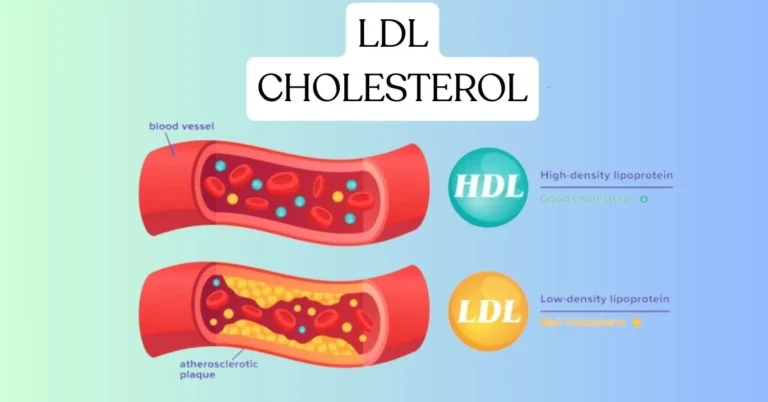Exploring the Synergistic Benefits of Combining Vitamin B1 and MSM Together
The combination of Vitamin B1, also known as thiamine, and methylsulfonylmethane (MSM) has been gaining attention for its potential health benefits. Both of these supplements are known for their individual properties: Vitamin B1 plays a crucial role in energy metabolism and nerve function, while MSM is valued for its anti-inflammatory effects and support of joint health. When used together, they may offer enhanced benefits that can help improve overall well-being.
Understanding Vitamin B1: The Energy Vitamin
Vitamin B1 is an essential water-soluble vitamin that is vital for converting food into energy. It is a key player in the Krebs cycle, where it helps in the production of adenosine triphosphate (ATP), the energy currency of cells. Thiamine is also critical for the proper functioning of the heart, muscles, and nervous system.
Sources of Thiamine
Thiamine is naturally present in a variety of foods, including:
- Whole grains: Brown rice, oats, and whole wheat
- Legumes: Lentils, black beans, and peas
- Nuts and seeds: Sunflower seeds and flaxseeds
- Meat: Pork and organ meats like liver
Despite its availability in many foods, some individuals may still experience thiamine deficiency, particularly those with poor dietary habits, alcohol dependence, or certain medical conditions.
Exploring MSM: The Organic Sulfur Compound
Methylsulfonylmethane, commonly known as MSM, is an organic sulfur compound that is found naturally in plants, animals, and humans. MSM is most commonly used as a dietary supplement to support joint health, reduce inflammation, and improve skin health.
How MSM Enhances Cellular Function
One of the remarkable aspects of MSM is its ability to improve cellular permeability. This means that MSM can enhance the flexibility and permeability of cell membranes, allowing for better absorption of nutrients and more efficient removal of toxins. This property is particularly beneficial for improving nutrient uptake and overall cellular health.
Natural Sources of MSM
While MSM is available in some foods, it is typically present in only small amounts:
- Fresh fruits and vegetables: Broccoli, kale, and Brussels sprouts
- Grains: Barley and wheat germ
- Legumes: Alfalfa and beans
- Dairy products: Milk and cheese
Due to the low levels of MSM in foods, many individuals turn to supplementation to achieve therapeutic benefits.
The Synergy of Combining Vitamin B1 and MSM
When combined, Vitamin B1 and MSM can create a powerful synergy that enhances their individual benefits. This combination can support energy production, improve nutrient absorption, and promote joint and muscle health.
Enhanced Energy Production
Vitamin B1 is essential for converting carbohydrates into energy. When paired with MSM, which enhances cellular permeability, the body becomes more efficient at absorbing and utilizing thiamine. This leads to improved energy levels and reduced fatigue, making the combination particularly beneficial for individuals with high energy demands or those recovering from illness.
Improved Nutrient Absorption
MSM’s ability to enhance cellular permeability also means that it can improve the absorption of various nutrients, including Vitamin B1. This can be especially helpful for individuals with compromised digestion or those who struggle with nutrient absorption. Better absorption of thiamine and other essential nutrients can lead to improved overall health.
Support for Joint and Muscle Health
Both Vitamin B1 and MSM play important roles in maintaining healthy joints and muscles. Thiamine is necessary for proper nerve function and muscle contraction, while MSM is known for its anti-inflammatory properties and its ability to support joint health. Together, they can help reduce muscle pain, support recovery after exercise, and promote overall joint flexibility.
Scientific Evidence Supporting the Combination
Several studies have highlighted the benefits of combining Vitamin B1 and MSM:
- Energy Metabolism: Research shows that thiamine supplementation can improve glucose metabolism and energy production, particularly in individuals with low levels of the vitamin. MSM, by enhancing nutrient absorption, may amplify these effects, leading to more consistent energy levels.
- Joint Health: A study published in the Journal of Clinical Rheumatology found that MSM supplementation reduced joint pain and stiffness in individuals with osteoarthritis. While the study focused on MSM alone, the addition of thiamine could further support joint and muscle function by ensuring proper nerve signalling and muscle contraction.
- Nutrient Absorption: A review published in Nutrients highlighted MSM’s role in enhancing cellular permeability, which can lead to better absorption of nutrients like Vitamin B1. This enhanced absorption may be particularly beneficial for individuals with malabsorption issues or those recovering from illness.
Practical Applications: How to Use Vitamin B1 and MSM Together
For those interested in combining Vitamin B1 and MSM, there are several ways to incorporate these supplements into a daily routine.
Supplementation Strategies
There are two main strategies for taking Vitamin B1 and MSM:
- Individual Supplements: Taking separate supplements allows for flexibility in dosing. This approach is ideal for individuals who need to adjust their intake of Vitamin B1 and MSM based on their specific health needs.
- Combined Formulas: Some supplement manufacturers offer combined formulas that include both Vitamin B1 and MSM in a single product. These formulas are convenient and ensure that both nutrients are taken in appropriate ratios.
Recommended Dosages
The recommended dosages for Vitamin B1 and MSM can vary based on individual needs:
- Vitamin B1: The Recommended Dietary Allowance (RDA) for thiamine is 1.2 mg per day for men and 1.1 mg per day for women. However, higher doses (50-100 mg) are often used in supplements, especially for those with increased energy demands or specific health conditions.
- MSM: Typical MSM dosages range from 1,000 mg to 4,000 mg per day. It is advisable to start with a lower dose and gradually increase as needed, monitoring the body’s response.
Timing and Synergy with Other Nutrients
To maximize the benefits of combining Vitamin B1 and MSM, it’s important to consider the timing of supplementation. Taking these supplements with meals can enhance absorption and reduce the risk of gastrointestinal discomfort. Additionally, combining them with other synergistic nutrients like magnesium or Vitamin C can further boost their effectiveness.
Safety Considerations
While Vitamin B1 and MSM are generally considered safe, it’s essential to be aware of potential side effects and interactions:
- Thiamine: As a water-soluble vitamin, thiamine has a low risk of toxicity. However, extremely high doses (above 500 mg) may cause mild side effects such as stomach upset or allergic reactions.
- MSM: MSM is well-tolerated by most people, but some individuals may experience side effects such as nausea, bloating, or diarrhoea, especially at higher doses. Starting with a lower dose and gradually increasing it can help minimize these effects.
- Drug Interactions: If taking medications, it’s advisable to consult with a healthcare provider before starting any new supplements, as Vitamin B1 and MSM may interact with certain drugs.
- Explore more: Naltrexone 4.50mg Extremely Tired: Everything Need to Know About Extreme Fatigue
Conclusion
The combination of Vitamin B1 and MSM offers a range of health benefits, from enhanced energy production to improved joint and muscle health. By understanding how these nutrients work together, individuals can optimize their health and well-being. Whether for boosting energy, supporting recovery, or enhancing nutrient absorption, the synergy between Vitamin B1 and MSM provides a powerful tool for achieving better health.
FAQs
What are the benefits of combining Vitamin B1 and MSM?
The combination supports energy production, improves nutrient absorption, and promotes joint and muscle health.
How does MSM enhance the effects of Vitamin B1?
MSM improves cellular permeability, allowing for better absorption of thiamine and other nutrients, and enhancing their effectiveness.
What is the recommended dosage for MSM?
MSM dosages typically range from 1,000 mg to 4,000 mg per day, depending on individual needs.
Can Vitamin B1 and MSM be taken together with other supplements?
Yes, they can be taken with other supplements like magnesium or Vitamin C for added benefits.
Are there any side effects of taking Vitamin B1 and MSM together?
Both are generally safe, but some may experience mild side effects like stomach upset or nausea, especially at higher doses.







